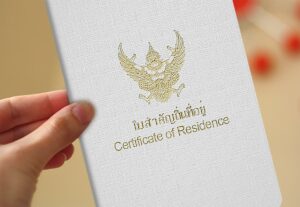Due diligence is an important part of buying a property in Thailand. Before you purchase a property, it is important to check if there is a rental agreement against it or if a usufruct has been registered against it. This can save you money and hassles down the line.
Land Description
Due diligence is a key part of any property transaction in Thailand. This step ensures that you’re getting exactly what you paid for, and helps to avoid costly mistakes that can happen in a property deal. It’s important to understand how due diligence works in Thailand, and how to make the most of it.
Due diligence requires investigating the title history of the land. This means reading the land title deed in its entirety and making sure there are no legal defects. It’s also important to make sure that the property’s title is properly registered in Thailand. Because the country’s title system works based on registration of title, any errors or omissions may have legal consequences.
Checking the Building Permit
Building permits are essential before you begin building on your property in Thailand. In some regions, there are restrictions on the height of buildings, and there are also zoning laws to consider. On Koh Samui, for example, you cannot build anything higher than 150 meters, while in Phuket, you can only build up to 80 meters. Before you start building, check the laws in the area and speak with a local attorney. You may also want to consider the legal status of the land and whether there are any existing or future utilities. This could save you thousands of dollars in production if it turns out you don’t have the right permits to build on your land.
If you’re planning to build a house on your property in Thailand, you should make sure that it has a building permit. The Building Control Act and the Town and City Planning Act regulate the construction of houses in Thailand. It’s vital that you check the land for any servitudes, usufructs, and superficies. You may also want to check the legal ownership of the land to ensure that you don’t buy a property that has zoning issues.
Obtaining a Building Permit
Obtaining a building permit is a vital part of property due diligence in Thailand. This document is necessary to transfer ownership of a property. It is also called a superficies and is granted by a landowner to another party. It can be granted for a specific fixed period of time (usually 30 years) or for the life of the landowner.
The process of due diligence involves physical inspection of the property. This helps establish the property boundaries and confirm that zoning regulations apply. In the case of condominium properties, this inspection is particularly important.
Land Office
If you are constructing a house in Thailand, obtaining a building permit is essential. This license is issued for the plot of land you intend to build on. Obtaining a permit is essential because foreigners are not allowed to own land in Thailand and are prohibited from certain occupations. Therefore, most foreigners put their building permit in the name of their Thai wife. This way, they can change their names as the construction process progresses.
There are a few key steps you should follow to obtain a building permit from the Land Office in the country. First, you should have a clear idea of how you intend to use your land. When applying for a building permit, it is important to check that the land you intend to build on conforms to the zoning and building laws of the area. If you plan to build a residential complex with more than nine plots, you should also obtain a subdivision license and fulfil all necessary infrastructural requirements. Furthermore, you should obtain a title document to your property so that you can sell or buy it.
Land Office Head of Registrar
Obtaining a building permit from the head of a land office in Thailand is an essential step in the construction process. The Building Control Act sets forth the regulations regarding building shape, size, and height. Each province has different requirements. Typically, a builder applies for a building permit.
Although purchasing land in Thailand is relatively easy for Thai citizens, foreigners can find the process a little complicated. The laws regarding ownership of land in Thailand are intricate, and even experts may misinterpret them. Foreign investors may only purchase up to 1 Rai of land, which is approximately 1,600 square meters or 2.53 Rai (0.4 hectares). They must meet certain investment requirements, bring in THB 40 million or more, and get permission from the Ministry of Interior to build on their land.
You might also enjoy

Thai Business Partnership
A Thai business partnership is one of the most commonly

Thailand Permanent Residency
Thailand Permanent Residency (PR) is a highly sought-after immigration status

Child Custody in Thailand
Child custody in Thailand is governed by the Civil and


